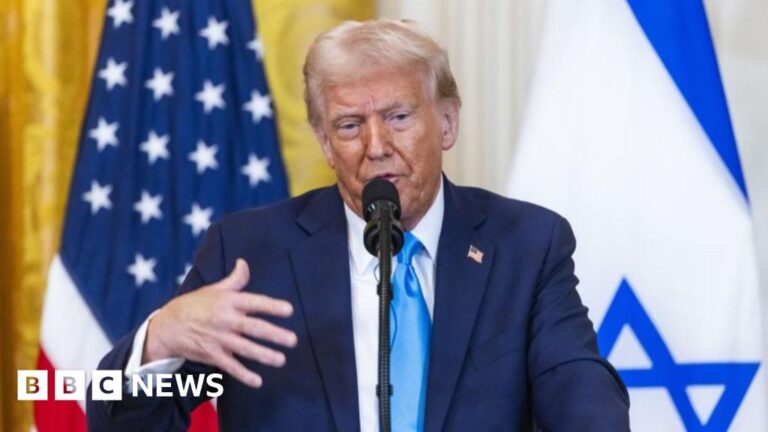Why Does Donald Trump Want to Take Over Gaza and Could He Do It?
In recent months, speculation has emerged surrounding former President Donald Trump’s interests in the Gaza Strip. While he has not explicitly stated a desire to "take over" Gaza, his political rhetoric often revolves around issues of national security, foreign policy, and the Israeli-Palestinian conflict. But what are the motivations behind these assertions, and is there any validity to the claim that he could effectively take control of Gaza?
Understanding Trump’s Interests in Gaza
1. Historical Context
The Israeli-Palestinian conflict has been a focal point of U.S. foreign policy for decades. Trump’s presidency brought a unique approach with the announcement of the "Peace to Prosperity" plan, which aimed to reshape the landscape of the Middle East. Trump’s support for Israel has garnered him significant backing among his political base; therefore, any discussion surrounding Gaza must consider his long-standing alignment with Israeli interests.
2. Political Strategy
Trump has often used foreign policy issues to mobilize his supporters. By reducing complex situations, like those in Gaza, into simple narratives of “us versus them,” he taps into a deep vein of nationalistic fervor. His focus on Israel—often portraying it as a critical ally under threat from adversaries—could be seen as a political strategy to galvanize his followers ahead of the 2024 presidential election.
3. Economic Opportunities
Gaza presents not just a geopolitical puzzle but also potential economic opportunities. Trump has frequently emphasized the importance of energy independence and economic development. Control or influence over Gaza would allow access to international aid, investments, or partnerships that could offer economic benefits, particularly for Israeli and American companies.
Could Trump Take Over Gaza?
1. Limited Political Options
While the idea of one country “taking over” another sounds dramatic, the political realities of the Israeli-Palestinian conflict make this scenario unlikely. The Palestinian Authority and Hamas govern Gaza, and any unilateral U.S. action would face immense international backlash. The United Nations has historically opposed territorial conquests, and any attempt by the U.S. to assert control would violate international law.
2. Military Considerations
Furthermore, a military intervention in Gaza would entail significant ramifications. During Trump’s presidency, he did emphasize “America First” principles, preferring diplomatic approaches rather than large-scale troop deployments. Any military action would require not only the support of Congress but also careful consideration of its potential impact on U.S. troops, regional stability, and international relations.
3. Domestic Opposition
Even if there were a desire to exert influence over Gaza, Trump would likely face fierce domestic opposition. Many Americans, regardless of political affiliation, support a diplomatic resolution to the Israeli-Palestinian conflict rather than militaristic engagement. The humanitarian angle is also crucial; the Gaza Strip has a dense population suffering from poor living conditions, and any attempts at control would face public scrutiny.
The Future of U.S. Policy Toward Gaza
As the 2024 election approaches, Trump’s stance on Gaza and the Israeli-Palestinian conflict will likely evolve. With foreign policy as an essential aspect of any campaign, he may amplify his narrative around Gaza to rally his base. However, it remains crucial for voters to discern between rhetoric and realizable policy.
Conclusion
Trump’s interest in the Gaza Strip is complex and multi-faceted, influenced by historical, political, and economic factors. While speculation surrounding his intentions grows, the practical realities of international law, military implications, and public opinion present significant barriers to any notion of “taking over” Gaza. The dynamic of U.S. involvement in the region will continue to be a hot topic, but it remains unlikely that any administration—Trump’s or another—will find a sustainable solution in Gaza in the absence of a collaborative and diplomatic approach.
By exploring these themes, it’s essential to remain informed about the evolving political landscape, especially as the 2024 elections draw near. Understanding the motivations and constraints will help contextualize discourse surrounding Gaza in the broader narrative of foreign policy and national interests.


